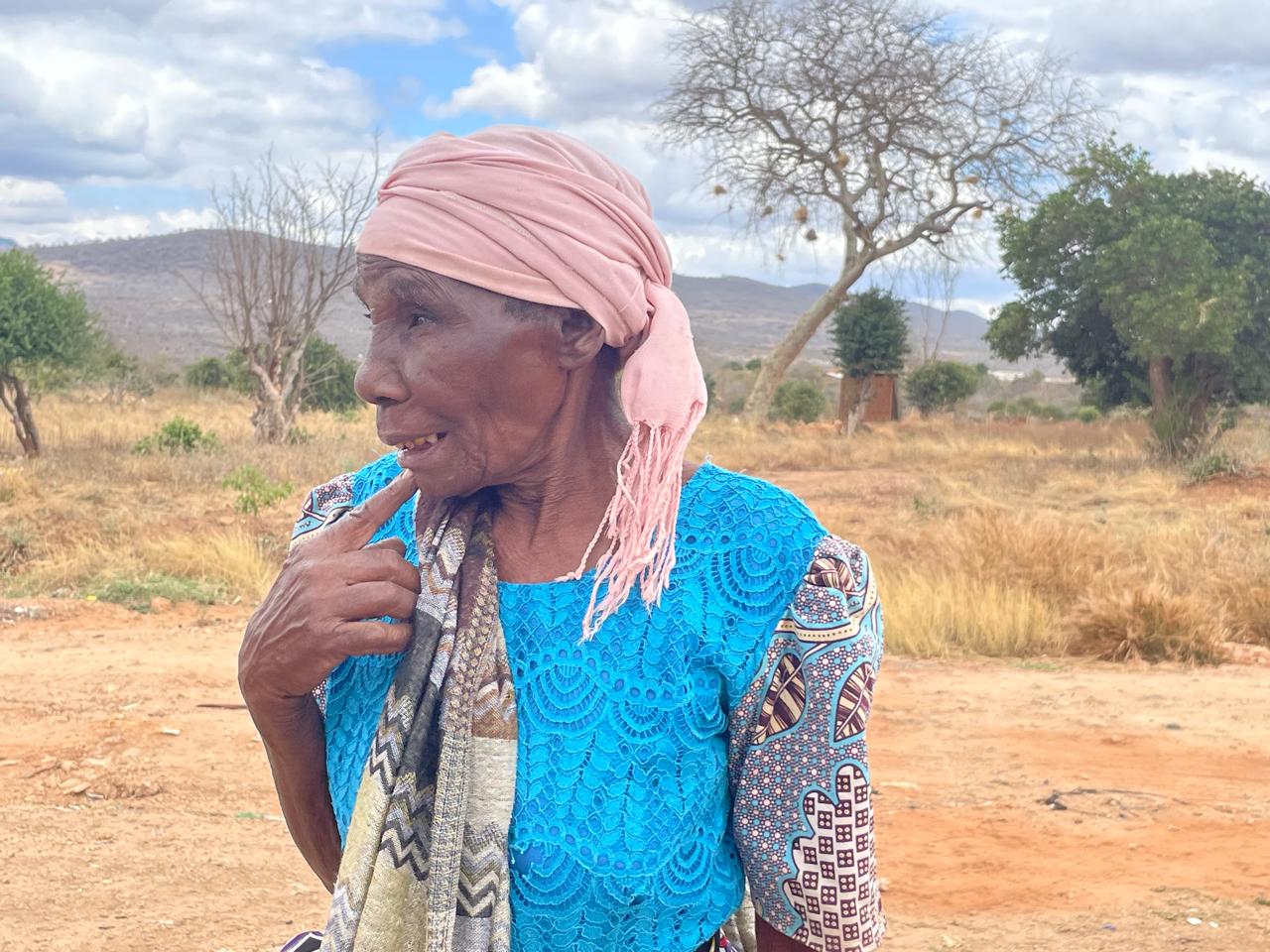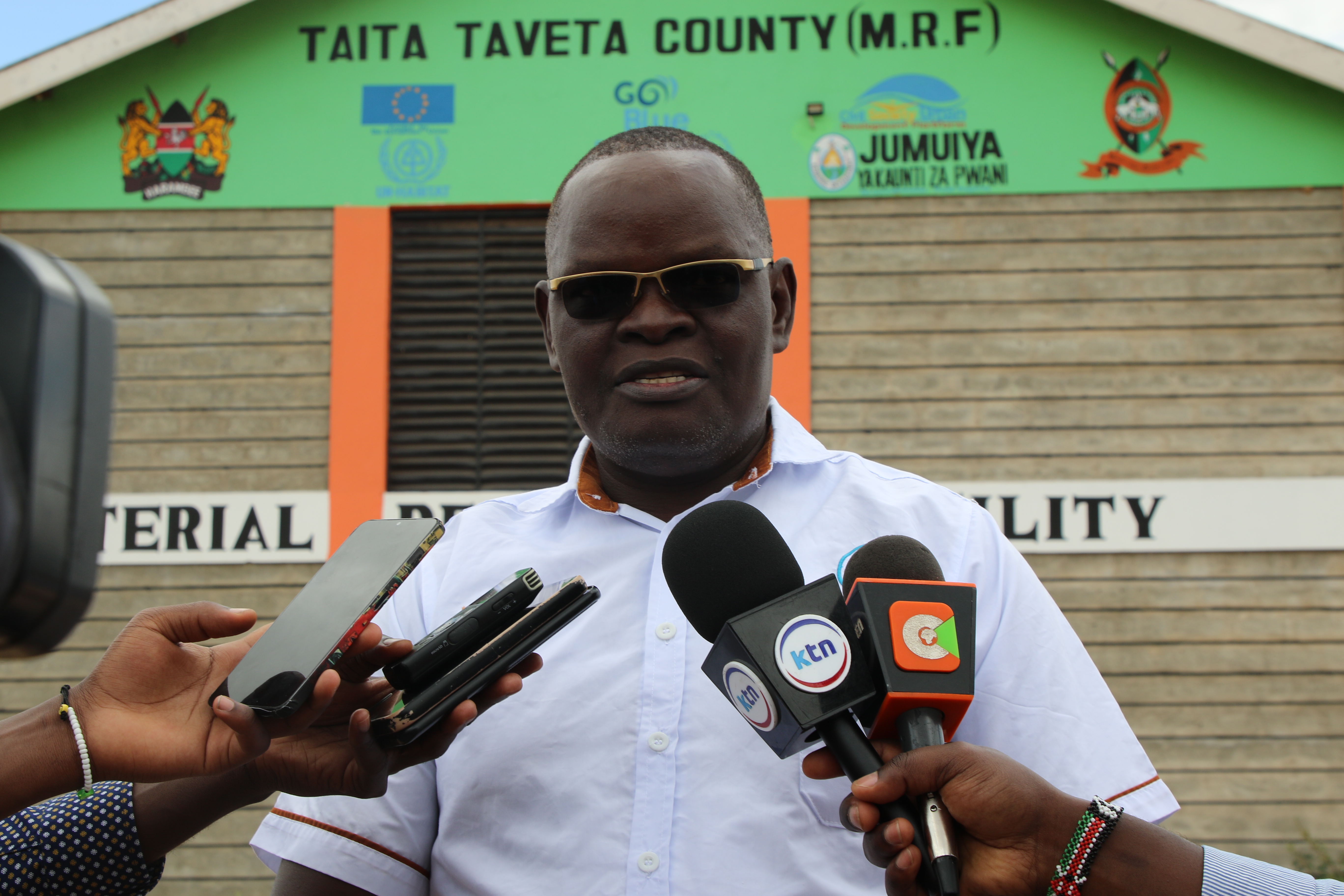
 Agnes Mwalego at her home near Chakaleri dumpsite/Gilbert Koech
Agnes Mwalego at her home near Chakaleri dumpsite/Gilbert Koech Taita Taveta County Nema director, George Oyoo, at the material recovery facility /GILBERT KOECH
Taita Taveta County Nema director, George Oyoo, at the material recovery facility /GILBERT KOECH
For two decades, Agnes Mwalego lived with a stench that clung to her home like an unwelcome shadow. Her land, a stone’s throw from the Chakaleri dumpsite in Mwatate subcounty, meant daily battles with swarms of flies.
“Flies have been common visitors to my house. I had no choice but to persevere – I had nowhere else to go,” she says.
Today, for the first time in years, Mwalego can sit down to a meal without brushing away the buzzing intruders. The change, she says, is thanks to the county government’s efforts to manage waste sustainably.
“The material recovery facility has helped drastically reduce the heaps of waste around here,” she says with relief. “Most of it is now recycled.”
The
transformation has turned what was once an eyesore into an unlikely lifeline
for others. At the dumpsite, Monica Nyagah patiently waits for a county truck
to tip its load. For 15 years, she has foraged through waste to support her
family.
“I’ve educated and fed my children from this work,” Nyagah says. “People now see waste as a resource, not just garbage.”
Together with 10 other pickers, Nyagah collects plastics, boxes and nylon. The earnings are modest – Sh30 for a kilogramme of plastics, Sh26 for light plastics and Sh4 for glass – but brokers remain a challenge.
The turning point came in March 2023, when the Taita Taveta Material Recovery Facility (MRF) in Chakaleri was launched with support from UN-Habitat and the European Union through the Go-Blue programme. The facility not only reduces pollution but also supports women and youth enterprises in recycling.
According to county executive for agriculture Grantone Mwandawiro, the MRF has so far recycled about 10 tonnes of plastics, 100 tonnes of glass and six tonnes of paper. He says it needs more equipment, including a baler to compress materials, while new legislation is being drafted to strengthen its operations.
For George Oyoo, Taita Taveta’s National Environment Management Authority director, the facility is a model of how to bring the Sustainable Waste Management Act to life.
“This is a vehicle for sustainable waste management because it encompasses recovery, sorting and proper disposal,” he says. “The waste value chain is also important for wealth creation.”
The law, signed in July 2022, demands segregation at the household level, with heavy penalties for non-compliance. Households that fail face fines of Sh20,000, six months in jail, or both. Waste service providers risk even steeper punishments – up to Sh50,000 in fines or imprisonment.
Colour-coded bins are at the heart of the system: green for organic waste, black for general waste and blue for recyclables. Counties were given two years to develop their own laws in consultation with the national government and the public. Each must also establish a material recovery facility for sorting, composting and recycling, with only a small fraction of waste ending up in landfills.
Nema has since tightened its grip, giving counties just 21 days to accelerate the transition to a circular economy by ensuring segregation at source.
“The culture has to change,” Oyoo says. “From schools to communities, people must learn that waste must be sorted from the source. That way, transporters deliver it here in an orderly way, making recycling easier.”
Under
the new plan, just five per cent of waste will be incinerated, 30 per cent
recycled and 60 per cent converted into manure. Only the remaining five per cent
will go to landfills.
For Mwalego, the changes have meant a new lease on life. For Nyagah, they mean dignity in work once considered dirty. And for Taita Taveta, they mark a small but vital step toward a cleaner, more sustainable future.


















